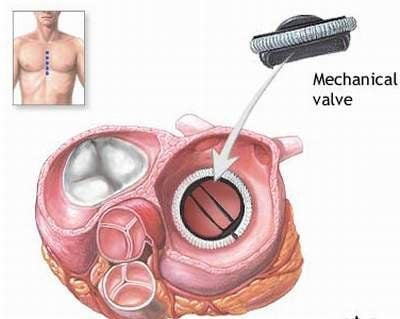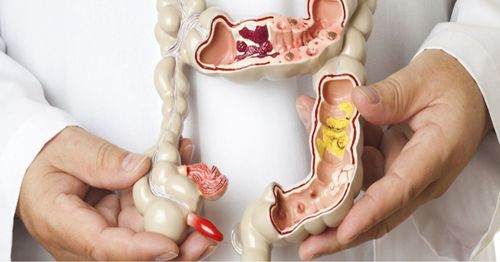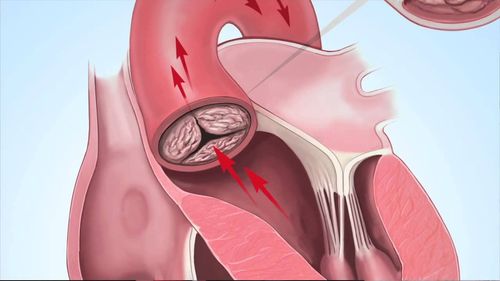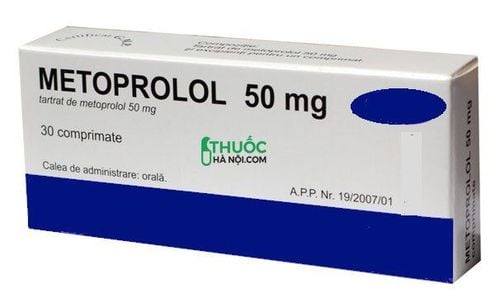This is an automatically translated article.
Is heart valve replacement surgery dangerous is the question that many patients ask when learning about this treatment method. In fact, any complex intervention has two sides: benefits and risks. However, the level of risks and complications can be reduced if the patient carefully reads the information and takes the postoperative care seriously.
1. Is heart valve replacement surgery dangerous?
Heart valve surgery has 2 most important stages affecting surgical results, that is the time of surgery and postoperative care.
Even during heart valve replacement surgery, patients can also face the following risks:
Reactions to anesthesia: Some patients may have a reaction to the anesthetic used during surgery. During surgery, the patient may bleed, if the blood loss is too much, blood transfusion will be necessary. . Injury during surgery: The surgical process can unintentionally cause other damage to the patient's body.

Ngay trong lúc thực hiện phẫu thuật thay van tim, người bệnh cũng có thể gặp phải các rủi ro, nguy hiểm
2. Complications after surgery
The risk of heart valve replacement surgery no longer depends on many factors. In particular, surgical methods (laparoscopic surgery or open heart surgery), replacement of biological or mechanical valves, drugs for treatment or comorbidities, ... can all affect the risk of postoperative increases. . Patients need to pay attention to some complications when having heart valve replacement surgery as follows:
2.1. Blood clots Thrombosis is common in people with mechanical heart valve replacements. Blood clots can cause tearing of the leaflets (for biological valve replacement) or blockage of the valve (in mechanical valve replacement), causing atrial fibrillation, which increases the risk of stroke (because blood clots move to the brain and block a blood vessel in the brain). .
To prevent this thrombosis, the patient will be prescribed to take anticoagulant drugs as prescribed by the doctor and periodically monitor the blood clotting index INR to adjust the prescription in time.
2.2. Drug-induced bleeding The use of anticoagulants for a long time or in inappropriate doses increases the risk of bleeding (hemorrhage) which manifests as bruises under the skin, nosebleeds, and bleeding. tooth root , stomach bleeding , more severe brain bleeding . However, the patient can completely control this condition by controlling the INR well.
2.3. Arrhythmias Atrial fibrillation (a form of heart rhythm disorder) is the most common complication after valve replacement surgery. This complication is dangerous in that it can cause cardiac arrest, increasing the risk of sudden death of the patient after valve replacement surgery.
2.4. Endocarditis Infective endocarditis is a dangerous complication, although rare, the mortality rate of this complication is up to 40-50%. “Early” endocarditis occurs within 60 days of intervention, and “late” endocarditis occurs in the post-operative period for some time. Infective endocarditis can easily damage the valve, and the patient may need to replace the valve again.

Phẫu thuật thay van tim có nguy hiểm không còn phụ thuộc vào nhiều yếu tố tác động.
3. In which case it is necessary to replace the heart valve?
To reduce the risks during surgery and complications later, patients should carefully learn some relevant information before performing heart valve replacement surgery. Not every stenosis or regurgitation requires surgery, but you will be prescribed treatment depending on the degree of stenosis and regurgitation along with each person's ability to respond.
3.1. If valve regurgitation and stenosis is mild to moderate, the patient does not need to undergo valve replacement surgery. Specifically:
Degree of stenosis, mild valve regurgitation: If the heart has not shown any special symptoms, you only need to have regular check-ups to monitor your heart health every 6 months. In addition, it should be combined with healthy lifestyle changes and gradual dietary adjustments. Mild and moderate degree of stenosis and regurgitation: If symptoms such as palpitations, shortness of breath, cough, edema, fatigue, chest pain appear, but if drug treatment controls symptoms, That way, you don't need to replace the heart valve and still prevent heart failure. 3.2. In case of need for valve replacement surgery Patients with stenosis need to have heart valve replacement surgery when medical treatments do not respond or show signs and symptoms worsening, or cases Ejection (EF) decreases, heart structure is changed (enlarged heart). Specifically in the following cases:
Stenosis, severe valvular regurgitation: With the degree of valve regurgitation 3/4 - 4/4, or stenosis with an orifice area less than 1.5cm2 accompanied by functional symptoms of heart failure. If the heart and left ventricular chambers are enlarged, the patient needs to undergo surgery soon. Particularly for aortic regurgitation secondary to hypertension with an ejection fraction less than 50% (measured on echocardiography), even mild regurgitation may require valve replacement. Atrial fibrillation occurs: If patients with stenosis and regurgitation develop atrial fibrillation complications, surgery or surgical intervention is also required. Similar to any other major surgery, besides the benefits that the method brings, valve replacement surgery also carries risks. However, patients can be prevented by enhancing monitoring and treatment of complications after heart surgery, using supportive drugs as indicated, and combining with a reasonable and good heart-healthy diet. Efforts from both families, patients and doctors will help patients overcome difficulties after heart valve replacement surgery more easily.
Vinmec is the only place in Vietnam that is equipped with a Hybrid room equipped with advanced equipment such as DSA angiography machine, anesthesia machine with the most closely integrated patient hemodynamic monitoring software (PiCCO system). , entropy,...). Therefore, Hybrid operating room can meet the requirements of surgery and angioplasty, coronary stenting, aortic stent graft, open heart surgery, heart valve replacement for congenital heart diseases with the least invasive technique. , safely help patients recover health soon.
Vinmec's cardiology team works in unity and mutual support, doctors Nguyen Van Phong and doctors Le Duc Hiep who participated in the surgery were all trained directly by foreign experts.
Vinmec is also the only place in Vietnam awarded the certificate of "Independent aortic valve replacement center in Vietnam" and GS. Vo Thanh Nhan is the first interventional cardiologist to be awarded the "Proctor" certificate in Vietnam. Vinmec's further goal is to become an excellent interventional cardiology center according to US standards, integrating with the world's level of cardiovascular intervention.
Please dial HOTLINE for more information or register for an appointment HERE. Download MyVinmec app to make appointments faster and to manage your bookings easily.
Reference source: hellobacsi.com













